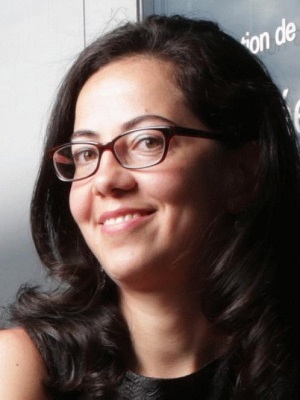Frontiers in Nanophotonics: Enabling Technology for Next-Generation Biosensors
Hosted By: Photonic Metamaterials Technical Group
17 May 2021 12:00 - 13:00
Eastern Time (US & Canada) (UTC -05:00)Biosensors play an essential role in bioanalytics and diagnostics. In particular, emerging healthcare needs with global health crisis, precision medicine and point-of-care diagnostics are demanding breakthrough developments in biosensing and bioanalytical tools. Current biosensors are lacking precision, are bulky and costly, as well as require long detection times, sophisticated infrastructure and trained personnel, which limit their applications.
Hatice Altug’s BIOnanophotonic Systems Laboratory at EPFL focuses on addressing these challenges by exploiting novel optical phenomena at the nanoscale and engineering toolkits such as nanophotonics, nanofabrication and microfluidics as well as augmenting bioimaging and hyperspectral sensor architectures with data science techniques. They use photonic nanostructures based on plasmonic and all-dielectric metasurfaces that can confine light below the fundamental diffraction limit and generate strong electromagnetic fields in nanometric volumes. They have been developing unique expertise within the visible and mid-IR spectral ranges, where they use both refractive index sensing and vibrational spectroscopy methods.
In this webinar, Hatice Altug will provide an overview for biosensing and present some recent examples. For example, Altug will introduce ultra-sensitive Mid-IR biosensors based on surface enhanced infrared spectroscopy for chemical specific detection of molecules, large-area chemical imaging and real-time monitoring of protein conformations in aqueous environment. Altug will describe her lab’s effort to develop ultra-compact, portable, rapid and low-cost microarrays and their use for early disease diagnostics in real-world settings. Altug will also highlight label-free optofluidic biosensors that can perform one-of-a-kind measurements on live cells down to the single cell level, and provide their overall prospects in biomedical and clinical applications.
Subject Matter Level:
- Intermediate - Assumes basic knowledge of the topic
What You Will Learn:
- Mid-IR Biosensing
- Nanophotonics
- Metasurfaces
- Nanofabrication
Who Should Attend:
- Graduate students, Research Associates and Research Assistants, and anyone else interested in mid-IR biosensing with plasmonic and dielectric metasurfaces.
About the Presenter: Hatice Altug, Ecole Polytechnique Federale de Lausanne (EPFL)
 Hatice Altug is a full professor in the Institute of Bioengineering at Ecole Polytechnique Federale de Lausanne (EPFL), Switzerland. She is also the director of EPFL Doctoral School in Photonics. She received her Ph.D. in Applied Physics from Stanford University (U.S.) in 2007 and her B.S. in Physics from Bilkent University in 2000. Prof. Altug received the U.S. Presidential Early Career Award for Scientists and Engineers in 2011, which is the highest honor bestowed by the United States government on outstanding scientists and engineers in their early career, the Optical Society Adolph Lomb Medal, which is presented to a person who has made a noteworthy contribution to optics at an early career stage, and the European Physical Society (EPS) Emmy Noether Distinction. She received the European Research Council (ERC) Consolidator Grant, ERC Proof of Concept Grant, U.S. Office of Naval Research Young Investigator Award, U.S. National Science Foundation CAREER Award, Massachusetts Life Science Center New Investigator Award, IEEE Photonics Society Young Investigator Award. She is an elected fellow of the Optical Society of America. She won Inventors’ Challenge competition of Silicon Valley in 2005. She has been named to Popular Science Magazine’s "Brilliant 10" list in 2011.
Hatice Altug is a full professor in the Institute of Bioengineering at Ecole Polytechnique Federale de Lausanne (EPFL), Switzerland. She is also the director of EPFL Doctoral School in Photonics. She received her Ph.D. in Applied Physics from Stanford University (U.S.) in 2007 and her B.S. in Physics from Bilkent University in 2000. Prof. Altug received the U.S. Presidential Early Career Award for Scientists and Engineers in 2011, which is the highest honor bestowed by the United States government on outstanding scientists and engineers in their early career, the Optical Society Adolph Lomb Medal, which is presented to a person who has made a noteworthy contribution to optics at an early career stage, and the European Physical Society (EPS) Emmy Noether Distinction. She received the European Research Council (ERC) Consolidator Grant, ERC Proof of Concept Grant, U.S. Office of Naval Research Young Investigator Award, U.S. National Science Foundation CAREER Award, Massachusetts Life Science Center New Investigator Award, IEEE Photonics Society Young Investigator Award. She is an elected fellow of the Optical Society of America. She won Inventors’ Challenge competition of Silicon Valley in 2005. She has been named to Popular Science Magazine’s "Brilliant 10" list in 2011.
